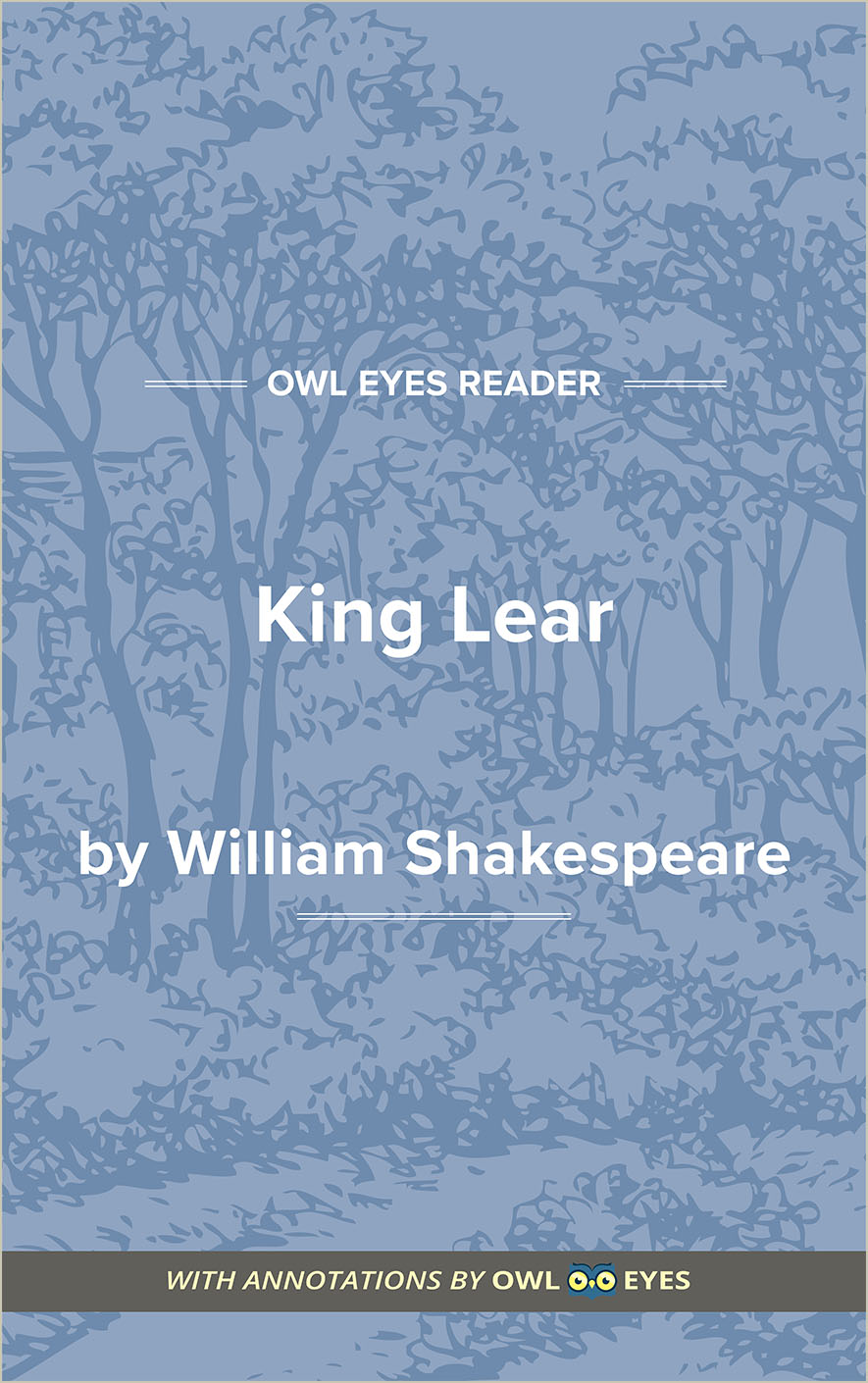Analysis Pages
Symbols in King Lear
Gods and Heavens: The gods and the heavens in King Lear are often invoked when characters are seeking divine intervention for justice and order. They become symbols throughout the entire play, specifically in times of great tragedy to further emphasize the descent into chaos or madness that has occurred.
Clothing and Costumes: Shakespeare uses clothing and costumes as symbols in many of his plays, and King Lear is no exception. Characters’ changing their clothing and appearance symbolizes their change in attitudes, awareness, and values. Costumes symbolize deception and treachery, but good characters use costumes as a means for protection rather than scheming.
Symbols Examples in King Lear:
Act I - Scene II
🔒"These late eclipses in the sun and moon(100) portend no good to us..." See in text (Act I - Scene II)
Act I - Scene IV
🔒"She'll flay thy wolvish visage...." See in text (Act I - Scene IV)
"your whoreson dog! you slave! you cur!..." See in text (Act I - Scene IV)
"Sirrah, you were best take my coxcomb...." See in text (Act I - Scene IV)
Act I - Scene V
🔒"She will taste as like this as a crab does to a crab...." See in text (Act I - Scene V)
Act II - Scene III
🔒"I will preserve myself: and am bethought To take the basest and most poorest shape That ever penury, in contempt of man, Brought near to beast: my face I'll grime with filth;..." See in text (Act II - Scene III)
Act II - Scene IV
🔒"wilt thou take her by the hand?..." See in text (Act II - Scene IV)
"No, rather I abjure all roofs, and choose..." See in text (Act II - Scene IV)
"O, reason not the need: our basest beggars Are in the poorest thing superfluous: Allow not nature more than nature needs, Man's life's as cheap as beast's: thou art a lady;..." See in text (Act II - Scene IV)
"You heavens, give me that patience, patience I need! You see me here, you gods, a poor old man,..." See in text (Act II - Scene IV)
"Ha, ha! he wears cruel garters..." See in text (Act II - Scene IV)
Act III - Scene I
🔒"This night, wherein the cub-drawn bear would couch, The lion and the belly-pinched wolf..." See in text (Act III - Scene I)
Act III - Scene IV
🔒"Those pelican daughters...." See in text (Act III - Scene IV)
"Is man no more than this? Consider him well. Thou owest(105) the worm no silk, the beast no hide, the sheep no wool, the cat no perfume. Ha! here's three on 's are sophisticated! Thou art the thing itself: unaccommodated man is no more but such a poor bare, forked animal as thou art...." See in text (Act III - Scene IV)
Act III - Scene VI
🔒"It shall be done; I will arraign them straight...." See in text (Act III - Scene VI)
Act III - Scene VII
🔒"Pluck out his eyes...." See in text (Act III - Scene VII)
Act IV - Scene II
🔒"If that the heavens do not their visible spirits(50) Send quickly down to tame these vile offences,..." See in text (Act IV - Scene II)
"Tigers, not daughters, what have you performed? A father, and a gracious aged man,(45)..." See in text (Act IV - Scene II)
"This shows you are above, You justicers, that these our nether crimes So speedily can venge!..." See in text (Act IV - Scene II)
Act IV - Scene III
🔒"gave her dear rights To his dog-hearted daughters, ..." See in text (Act IV - Scene III)
"It is the stars, The stars above us, govern our conditions;..." See in text (Act IV - Scene III)
Act IV - Scene IV
🔒"Crowned with rank fumiter and furrow-weeds, With hardocks, hemlock, nettles, cuckoo-flowers, Darnel, and all the idle weeds that grow..." See in text (Act IV - Scene IV)
Act IV - Scene VI
🔒"You ever-gentle gods, take my breath from me: Let not my worser spirit tempt me again To die before you please!..." See in text (Act IV - Scene VI)
"Through tattered clothes small vices do appear;(180) Robes and furred gowns hide all. Plate sin with gold, And the strong lance of justice hurtless breaks:..." See in text (Act IV - Scene VI)
Act IV - Scene VII
🔒"These weeds are memories of those worser hours: I prithee, put them off...." See in text (Act IV - Scene VII)
Act V - Scene III
🔒"No, no, no life!(365) Why should a dog, a horse, a rat, have life, And thou no breath at all?..." See in text (Act V - Scene III)
"No, no, no, no! Come, let's away to prison: We two alone will sing like birds i' the cage:..." See in text (Act V - Scene III)

